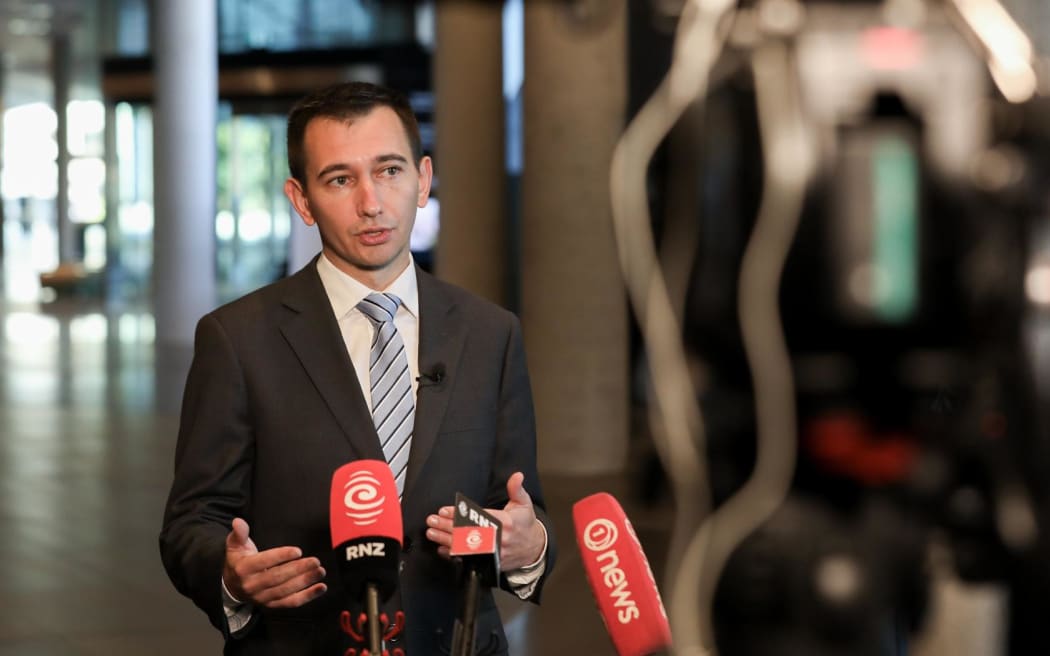
Photo: 123RF
The country's largest private medical scanning company says it is "well placed" to become a national partner to the public health system.
The government is outsourcing more medical procedures to private facilities to cut wait times and backlogs of patients.
RHCNZ - which does MRIs, CTs, ultrasounds and the like - increased its revenues and earnings in the latest year by 8-9 percent, to $369m and $126m.
The company's majority owner Infratil told investors via its annual report this week to expect more of the same.
"Following a sustained period of investing for growth, RHCNZ is now well-placed for the income generation that follows.
"Encouragingly, RHCNZ is having constructive discussions with all three of its major funders - ACC, Health New Zealand Te Whatu Ora, and Southern Cross Healthcare.
"Scale, reach, and operational expertise position the platform to contribute meaningfully to alleviating diagnostic bottlenecks and advancing equitable health outcomes."
RHCNZ, which has over 140 radiologists at Pacific, Bay and Auckland Radiology's 72 clinics, is getting a new chief executive who recently sang the praises of Wellington (public) Hospital for spotting his kidney cancer 18 months ago.
"I have subsequently thought about how fortunate I was," Steven Carden wrote on LinkedIn. "Fortunate in so many ways."
That made him "particularly excited" to be joining the firm.
"New Zealand is in deep need of investment and growth in the capacity of our health system (both public and private)," Carden said.
Expert advice has gone to Health Minister Simeon Brown saying that more outsourcing could undermine the public workforce, if it was done in a rush and without careful mitigations.

Health Minister Simeon Brown. Photo: Nathan Mckinnon / RNZ
Training is an especially thorny problem, due to difficulties ensuring both public and private provide the right mix.
A memo to Brown in March had registered the "concern that training is becoming unbalanced", referring to simple versus complex surgery.
RHCNZ told RNZ it was already doing a lot to "share the burden of training" with public hospitals.
"A large number of RHCNZ radiologists have very active training roles," it said.
Ministerial briefings suggest this had been going on in the absence of a "sustainable" funding model for public-private training.
Radiology is likely to be the first speciality where a public-private training agreement is signed, among the several that Health New Zealand said it had on the go. Orthopaedics already has such a deal.
These agreements would dovetail with the longer, broader contracts that HNZ has begun signing with private providers to do scans, surgeries and other procedures on patients in the spillover from overwhelmed public hospitals.
Infratil also owns an Australian scanning business, Qscan; it did slightly better on returns, but RHCNZ had navigated funding pressures, workforce constraints and "wider health sector disruption", the annual report said.
Among the responses to Carden's LinkedIn post, one said: "As a cancer survivor who had to travel from Christchurch to Wellington and then Melbourne for scans while dealing with a cancer diagnosis I totally agree that we need to invest and grow our technology and facilities in New Zealand."
After a joint venture was set up earlier this year between Pacific Radiology and HNZ on scanning in Waikato, iwi leader Lady Tureiti Moxon was quoted saying, "This is what tino rangatiratanga in healthcare looks like".
RHCNZ said it had "a role in developing a sustainable workforce for the whole system, and is contributing to training of radiologists and medical imaging technologists across the country".
Its half a dozen training activities included supervision of junior doctors at Christchurch, Dunedin, Wellington and Tauranga clinics, with a proposal to expand this to Auckland.
It also gave training in PET/CT - an advanced type of scanning not widely available in the public system.
The company led a triple-pronged attempt in 2022 to hold back a tide of surgeons setting up and owning scanning services. It later did a U-turn, seeking out doctor and surgeon investors itself.
Infratil owns 51 percent of RHCNZ; the rest is mostly owned by doctors.
Sign up for Ngā Pitopito Kōrero, a daily newsletter curated by our editors and delivered straight to your inbox every weekday.





